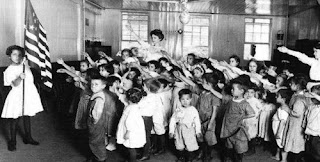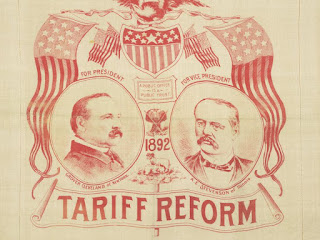For the Children!
It is not a day that goes by where I do not hear the same counter argument to individualism that permeates the classical Hegelian cognizant dissonance. This notion: for the children.
In my piece about why Colorado is absurd for wanting to pass a law that would require retail sellers of cellular phones to find out if the item was to be used by people under a certain age, I've heard "But we have to do this for the children!"
The argument is emotionalist claptrap.
It violates its own ethics
To say "for the children" one is suggesting that there is an entity, definable as a single thing, called a child. And that this entity, called the child, has an identifiable construction called self, else we couldn't isolate it as a definable individual person called Child. We call this self "conscience" - the individuals self access to its identity of things it considers good and bad - This is just part of the overall individual's consciousness.
The metaphysics of "For the Children" implies that some other group or entity of peoples knows a truth about something that the child is not able to know. This is Plato's view on reality. He believed that there are two worlds, after all, the one we live in and the one where there are known universal truths. The person saying, "For the children" is suggesting they have access to this other world and its universal truths and that the child has yet to realize these other worldly truths.
Thus, the person saying that they have access to this universal truth is suggesting that those that do not have access to this underlying truth should be controlled. From Plato's view, a doctor is morally free to keep the heroin addict from access to the drug, even at the expense of the addict's freedom being restricted.
But there in lies the comedy. For modern societies are based more on Hegel and Kant than on Plato. So, when the crowd screams "For the Children!" they literally mean, filii pretium - At the cost of the child. Because the Hegelian majority enforcing this view has no intention of giving up their own rights to the objects in question. Take for example the law on cell phones. Who determines that the age limit imposed by the law is the appropriate age? Why is it age based at all? There are plenty of people called adults that fail to use their cell phones in the exact so-called moral methods the law makers intended for the children. Age is already an arbitrary, nondeterministic means of making a judgment. Even under Plato's metaphysics, age is not a universal method of making this a truth. Thus the law imposing a value of universal truth is already anti-universal, but merely subjective. Age is simply a judgment, based solely on the emotional opinion of those creating this construct. Thus, the reason "For the children" already implies that there is no moral value because it will violate any underlying ethics required for it have any value.
It was safer when I was younger
"But when I was younger the world was safer. It was less complicated. There was more innocence! Thus, these laws need to exist to protect children."
***stop right there! before you cross your arms and say, "There is more crime, the world is less safe" etc. Please look here: https://ucr.fbi.gov/ --- they keep the records people! And the records actually show that it is safer today than it was twenty years ago.***
***stop right there! before you cross your arms and say, "There is more crime, the world is less safe" etc. Please look here: https://ucr.fbi.gov/ --- they keep the records people! And the records actually show that it is safer today than it was twenty years ago.***
That is the basis of their entire emotionalism: That life was cleaner, easier, less sophisticated when they were a child and current children should also be restricted to the same kind of expected meaning of the purpose of childhood that they were exposed to. You do see how this a Platonic notion I hope? Implying that the adult's 'wisdom' of past events can be measured against the current real world.
Right now, Coloradans are saying children shouldn't have access to cell phones. But I doubt that many of those individuals trying to impose this For The Children worldview would be suggesting that we should apply the same laws against buying other things, like: televisions, books, candy.
But why? Why is it okay for a mother of six to go into a bookstore, buy a copy of the latest romantic novel without first proving that she is buying it for herself and will not allow a twelve-year-old access to it? How can a man go into a BestBuy and purchase the latest sixty-inch television and not sign a document that says that the television isn't for their nine-year-old son's bedroom? How about purchasing music for children, with its violence and sex? How about allowing access to cable television? Where is the outcry against all of this old established technology?
We come back to the Platonic notion again. You see, people believe that because they survived books in the house when they were children and it did not wrongly change them, then books aren't a bad thing. The book becomes a universal thing in a past existence of known reality. Reading Madonna's coffee table book as a nine-year-old leaves the individual as an adult absent the negative opinions that their parents would have had if they had found out. This is the same for all previous technology that was established to us in our youths. It takes on a sense of The Good as we age and since we survived, we determine that it won't kill us. The same will be said of cell phones and Facebook and all those other objects people are so against children having access to today.
In the end, moral truths are based on individual rights and ownership of those rights. Groups of people claiming ownership by means of Plato or Kant are in fact only claiming that authority through the use of violence and destroying other peoples property. The State and the concept of majority attempts, always, to take ownership over other people's means of production. Such acts are immoral, even if done under the false notion of "For the Children".



Comments
Post a Comment